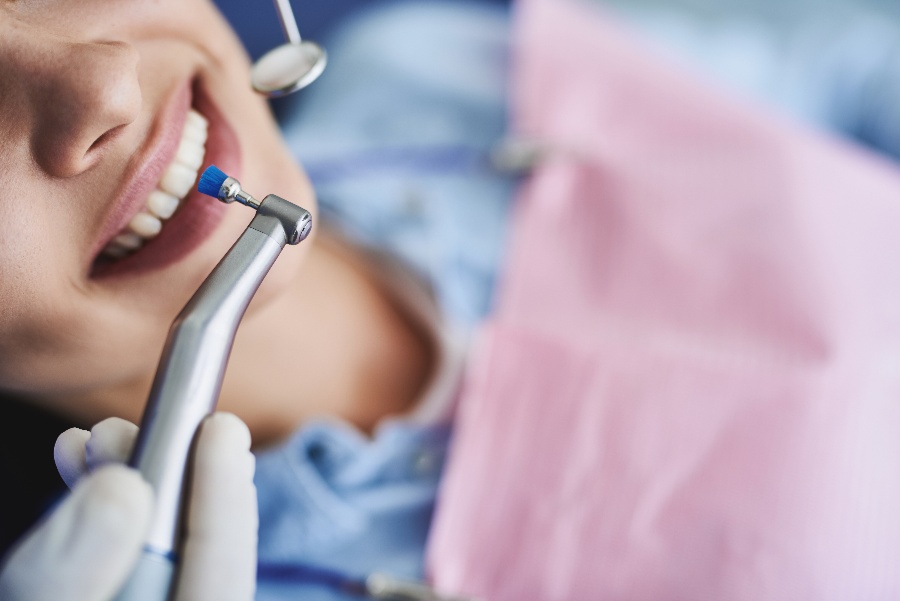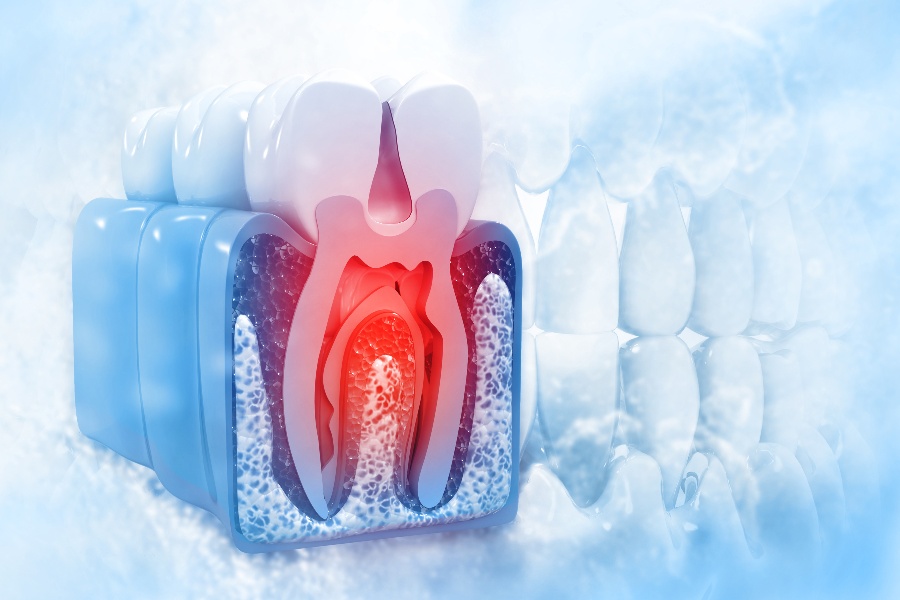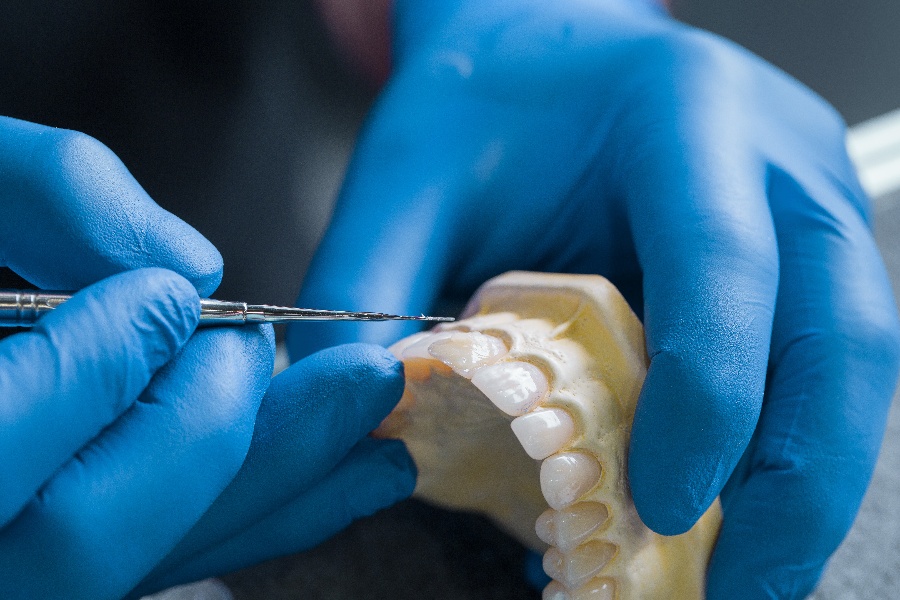According to the Centers for Disease Control and Prevention (CDC), tooth decay and gum disease are two of the most common oral health problems in the United States. These preventable conditions affect millions of people each year. In fact, the CDC reports that nearly half of all adults over the age of 30 have some form of gum disease. Regular professional teeth cleaning can play a critical role in preventing these and other oral health problems.
What is Professional Teeth Cleaning?
Professional teeth cleaning, also known as dental prophylaxis, is a procedure performed by a dental hygienist or dentist with specialized instruments to remove plaque, tartar, and stains from your teeth.
The procedure may include the following steps:
- Physical exam. Your dental hygienist will examine your mouth for any signs of problems or oral health issues.
- Scaling. Using a special tool, your dental hygienist will remove the buildup of plaque and tartar from your teeth. Special attention is paid to areas that are difficult for you to clean with brushing and flossing.
- Polishing. Your dental hygienist uses a polishing tool and a special paste to polish your teeth and remove any surface stains.
- Flossing. Your dental hygienist will floss between your teeth to remove any remaining plaque and ensure that your teeth and gums are clean and healthy.
- Fluoride treatment. Professional fluoride gel may be applied to your teeth to help strengthen the enamel and prevent cavities.
Seven Reasons Why Dental Plaque Removal Is Important
Dental plaque is a sticky film made up of bacteria and food particles that forms on the surface of your teeth. Here are seven reasons why regular plaque removal is important:
- Prevents cavities. When bacteria in plaque feed on sugars and starches in your mouth, they produce acid that can erode the enamel of your teeth and cause cavities.
- Prevents gum disease. Plaque buildup causes gum inflammation and infection of the gums and bone that surround and support your teeth. Signs of gum disease include redness, swelling, and bleeding. If untreated, gum inflammation can progress to periodontitis, which is a common cause of tooth loss.
- Prevents tartar buildup. If plaque is left on the teeth for too long, it can harden into tartar, which is more difficult to remove and can lead to more serious oral health problems.
- Reduces the risk of systemic health problems. Poor oral hygiene and untreated dental problems have been linked to a range of systemic health problems, including heart disease, stroke, and diabetes. Removing plaque and preventing oral health problems through regular dental cleanings can help reduce the risk of these health issues.
- Freshens breath. Plaque buildup can also contribute to bad breath. When bacteria in plaque break down food particles in your mouth, they release odorous gases that can cause bad breath.
- Enhances appearance. Plaque buildup can make your teeth appear yellow or discolored and, if not removed, can cause stains. Removing plaque can help enhance the appearance of your teeth and give you a brighter, healthier-looking smile.
- Saves money. Dental cleanings are a relatively inexpensive way to maintain good oral health and prevent more costly dental problems in the future.
The Benefits of Professional Teeth Cleaning
While home oral health care is essential to maintaining healthy teeth and gums, there are many benefits to having your teeth professionally cleaned regularly. Here are some of the benefits:
- Removes plaque and tartar buildup from every tooth surface. Even with regular brushing and flossing, plaque and tartar can build up on hard-to-reach tooth surfaces. If this plaque remains, it can lead to cavities and gum disease. A professional teeth cleaning removes this buildup, leaving every tooth surface clean and healthy.
- Helps prevent gum disease. Gum disease is a common problem that can cause tooth loss if left untreated. Regular teeth cleanings can help prevent gum disease by removing the bacteria that cause it.
- Keeps your breath fresh. Bad breath can be embarrassing and may indicate a more serious dental problem. Professional teeth cleaning removes the bacteria that cause bad breath, leaving your mouth feeling fresh and clean.
- Detects dental problems early. During teeth cleaning, your dental hygienist will examine your teeth and gums for signs of dental problems such as cavities, gum disease, and oral cancer. Early detection of these problems can lead to easier and less expensive treatment.
- Improves overall health. Good oral hygiene has been linked to overall health, as bacteria from the mouth can enter the bloodstream and cause health problems such as heart disease, diabetes, and respiratory infections. Professional teeth cleaning can help reduce the risk of these problems by removing the bacteria that cause them.
- Produces whiter and brighter teeth. Over time, teeth can become stained from food, drink, and other factors. Professional teeth cleaning can remove these stains, leaving your teeth looking brighter and whiter.
- Helps you save money in the long run. Regular professional teeth cleaning can prevent dental problems that may require expensive treatment down the road. By investing in your oral health now, you can save money in the long run by avoiding costly dental procedures.
- Helps prevent tooth loss. Gum disease is one of the leading causes of tooth loss in adults. Regular professional teeth cleaning can prevent gum disease and help keep your teeth healthy and strong for a lifetime.
- Helps with the early detection of oral cancer. During teeth cleaning, your dental hygienist will examine your mouth for signs of oral cancer. Early detection is crucial for successful treatment.
- Reduces the risk of pregnancy complications. Poor oral health has been linked to pregnancy complications such as premature birth and low birth weight. Professional teeth cleaning can help reduce this risk by keeping your mouth healthy and free of harmful bacteria.
- Boosts self-confidence. A clean, healthy smile can boost your self-confidence and improve your overall quality of life. Regular professional teeth cleaning can help you achieve and maintain a bright, beautiful smile.
What is Deep Cleaning?
If you are diagnosed with gum disease, your dentist will recommend a deep cleaning, or scaling and root planing, to attempt to improve your gum health and prevent further progression of the condition. Here are some things to know about deep cleaning:
- Two-part procedure. Deep cleaning is typically performed in two parts. The first part, scaling, involves removing the buildup of plaque and tartar from the teeth and below the gum line. The second part, root planing, involves smoothing the tooth roots to remove any rough spots that may be trapping bacteria.
- Local anesthesia. A deep cleaning may require local anesthesia to make the procedure more comfortable. The area around the teeth and gums will be numb to ensure the procedure is comfortable.
- Multiple visits. Deep cleaning is typically performed over the course of two or more visits, depending on the severity of the gum disease.
- Helps prevent the progression of gum disease. Deep cleaning is an effective way to keep gum disease from getting worse and possibly causing tooth loss.
Schedule an Appointment
Call us or contact us online to learn more about how Palmetto Dental Arts can help you maintain healthy teeth and gums for a bright and beautiful smile.




